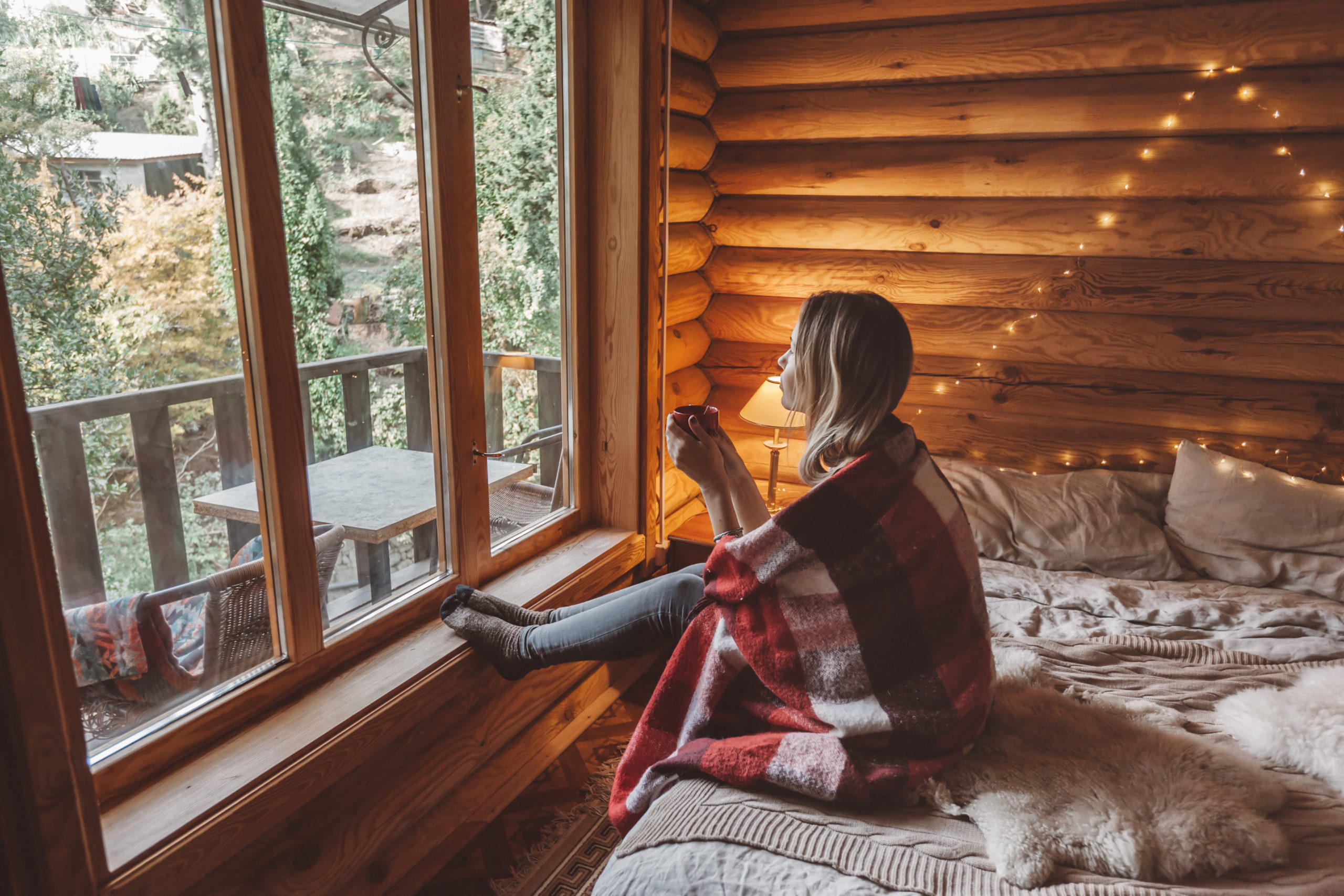by Brandy Abalos
When it’s cold outside, most people want nothing more than to stay warm and cozy inside, but turning up the thermostat can result in a hefty heating bill. Heating a home can make up more than 40% of a typical utility bill. Fortunately, there are ways to reduce the heating bill and avoid shivering the nights away.
- Wear Warm Clothing
-
- Consider wearing clothing specifically made for cooler weather. That includes long sleeves, thicker pants and materials like wool or denim. Wear cozy socks or slippers to keep the feet warm, as people lose most of their body heat through the feet and head. Layers can be comfortable because they can be adjusted as the temperature fluctuates.
- Use a Thick Blanket
- Those who get cold while relaxing at home can try curling up under a thick blanket. Keep throw blankets on the couch and chairs in living spaces. Adding an extra blanket to keep beds warmer at night is also a good idea.
- Take Advantage of the Sun
- While there are more clouds in the sky during the winter, the sun occasionally comes out. When it does, take advantage of the sun’s heat. Opening curtains or blinds lets in warm sunlight. Then, at night, close the window coverings to insulate the windows.
- Close Vents in Unused Rooms
- Those with a central heat system that blows warm air throughout the house should frequently close vents in unused rooms. It’s unnecessary to heat the whole home at one time. Close doors and stuff a towel at the base of any entrances.
- Bake or Use the Oven at Home
- Baking and cooking meals at home will not only lower grocery cost but can also heat up the house. The radiant heat from the appliance will warm the surrounding air. It can significantly reduce the chill in a kitchen full of cold tiles. Turn the oven off but leave the door open a small amount. Doing so will allow warm air to escape into the kitchen.
- Make Sure All Windows and Doors are Closed
- During warm months, it is common to leave doors and windows cracked to let in fresh air. However, it’s easy to forget those openings aren’t tightly sealed. Test all windows and doors for air leaks when the weather begins to cool down and ensure they are closed and locked.
- Use Ceiling Fans in Reverse
- Many people think ceiling fans are only used to create a cool breeze during warm months. However, they can also distribute heat throughout the house. Use the switch on the base of the fan to turn the fan blades clockwise. When the blades turn clockwise, they pull air up and push warm air down walls throughout the room.
- Strategically Arrange Furniture
- Arrange furniture so that it improves the airflow in the room. Place furniture at least a few feet away from vents, so it does not block them. Use vent deflectors that redirect air from the vent if it is impossible to keep furniture away from it.
- Winterize the House
- When the weather becomes cool, ensure that the home is ready. Doing so will include checking and filling gaps in windows and doorways and protecting water pipes from freezes. Take this opportunity to inspect all carbon monoxide detectors and have a professional look at the heating system. Taking steps to prepare the home for cold weather saves money in the long run.
- Turn Down the Thermostat
- Although many people might not want to hear it, the fastest way to lower the heating bill is to use less energy in the first place. Families that can tolerate having the thermostat lower save more money. Energy.gov recommends keeping the room temperature at 68 degrees when the household is awake. However, if the home will be empty for more than a few hours, it should be lowered. Another effective solution is to turn the temperature down during the night when everyone is cozy in their beds.
Reduce Winter Expenses with a Lower Heating Bill
A heating bill can be just as expensive as summer air conditioner costs. It’s possible to avoid shelling out significantly more cash over the colder months by taking steps to stay warm and keep thet hermostat as low as possible. All of that money saved on heating can be used for a vacation somewhere warm later on.








Leave A Comment